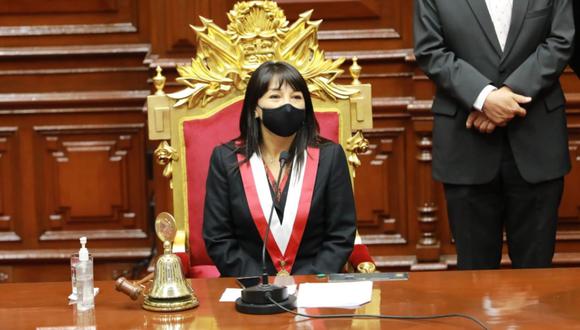Peru is winning over miners with soft hand on conflicts, PM says

Mining companies in Peru are starting to get on board with a new soft-handed approach to resolving social conflicts that threaten some of the world’s biggest copper, zinc and silver operations, according to a top government official.
Previous governments tended to send in the military to deal with mining protests, leading to injuries, deaths and simmering resentment among isolated rural communities. The new strategy of respecting the right to protest while brokering lasting agreements may take longer, but it’s starting to bear fruit, Prime Minister Mirtha Vasquez said in an interview late Tuesday.
“Companies are in an interesting process of reflection,” she said. “Although these roads seem longer, there is no better way for them than these sustainable scenarios of tranquility.”
The government of socialist President Pedro Castillo came under fire by the industry over its handling of a slew of community demands ranging from shutting some mines over environmental concerns to sharing more in the economic benefits. Tensions peaked last month with the closure of MMG Ltd.’s Las Bambas mine amid blockades along a road used to send copper to port.
But a preliminary deal was eventually struck with communities to lift the road blocks, allowing operations to resume. That’s helping ease tensions in a country that the copper market is relying on to help meet growing demand in the transition toward clean energy.
Castillo, a former union leader who was swept to power by the rural vote, wants to replace bloody battles of the past with dialog, tailored solutions, a greater state presence to ensure compliance and prevent flareups, and by channeling more resources to areas of high conflict, Vasquez said.
Las Bambas “is quite open to entering this new model, to discuss how to incorporate people into the value chain and generate less impact on the population,” she said.
Other companies caught up in social conflicts such as Hochschild Mining Plc have also welcomed the opportunity to improve processes, the prime minister said. Some others in the industry continue to think the state is there to repress, she said. “These people must be shown that the heavy hand has not worked.”
The government is working with the World Bank on ways to progressively strengthen environmental oversight, with sanctions for non compliers and tougher rules for vulnerable areas, especially in the face of climate change. It’s also preparing a standard for protected areas to prevent illegal mining and wants to redistribute tax revenue from the industry.
“We want to review the mining canon law so that the resources that come from the extractive activity really go to the communities that are closest to this activity,” she said.
(By María Cervantes and James Attwood)
{{ commodity.name }}
{{ post.title }}
{{ post.date }}




Comments
Kariseb Gerhardt
Lasting solutions for any dispute disagreement is of outpost importance.